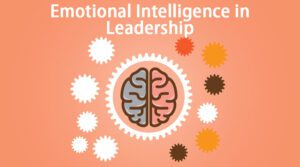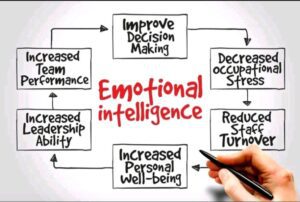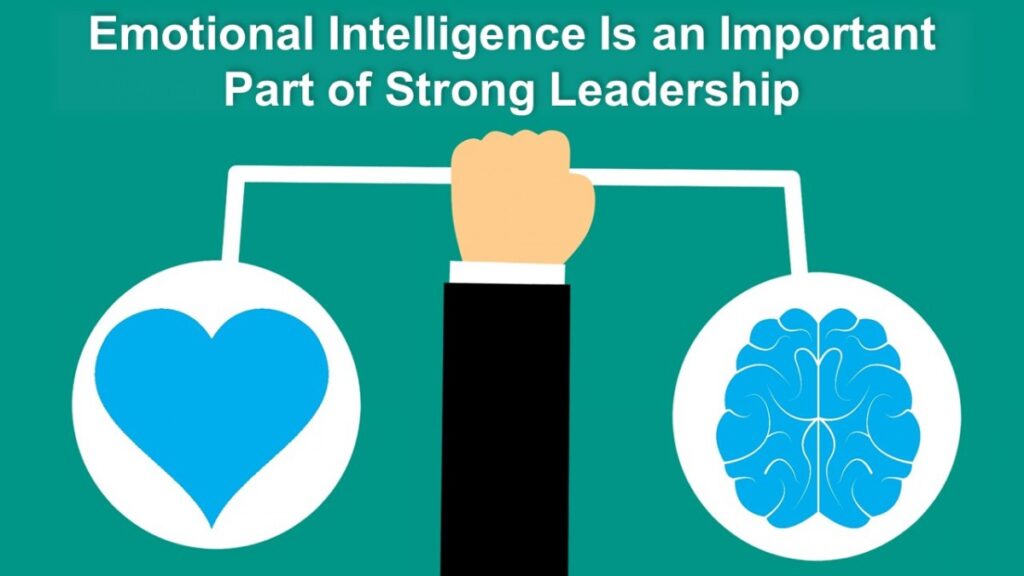In the complex leadership landscape, where decisions impact teams, organizations, and communities, emotional intelligence (EI) is a cornerstone for effective leadership. Emotional intelligence encompasses the ability to recognize, understand, and manage one’s emotions and those of others. In the context of leadership, EI becomes a vital tool for fostering positive relationships, driving organizational success, and navigating challenges with resilience.
Understanding Emotional Intelligence
Emotional intelligence comprises various components: self-awareness, self-regulation, social awareness, and relationship management. Leaders with high emotional intelligence are adept at recognizing their emotions and understanding how they influence their thoughts and behaviors. They can effectively manage stress, remain flexible in adversity, and maintain a positive outlook even in challenging situations.

Building Trust and Fostering Collaboration
One of the fundamental aspects of leadership is building trust among team members. Leaders with high emotional intelligence excel at establishing trust through open communication, empathy, and authenticity. By understanding their team members’ emotions and perspectives, emotionally intelligent leaders can create an inclusive and supportive work environment where individuals feel valued and respected.
Moreover, emotional intelligence plays a crucial role in fostering collaboration within teams.
Effective Decision-Making and Conflict Resolution
In the fast-paced and dynamic business world, leaders often face complex decisions and conflicts that require careful consideration and resolution. Emotional intelligence enables leaders to make informed decisions by weighing emotional cues, intuition, and rational thinking. By remaining calm and composed under pressure, emotionally intelligent leaders can assess situations objectively and choose the most appropriate course of action.
Furthermore, emotional intelligence equips leaders with the skills to navigate conflicts constructively.

Great leaders inspire and motivate others to achieve their full potential.
Moreover, emotionally intelligent leaders lead by example, demonstrating authenticity, integrity, and resilience. Their positive attitude and unwavering commitment inspire trust and loyalty among their followers, fostering a sense of purpose and belonging within the organization.
Conclusion
In conclusion, intelligence is pivotal in effective leadership. It enhances communication, builds trust, promotes collaboration, facilitates decision-making, and inspires others.

